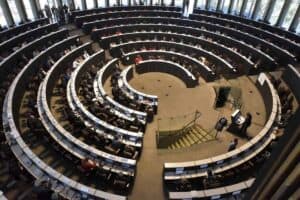You may have voted for a DA promise but may get ANC-style service delivery, instead, from a coalition-based local government.

You may have voted for a Democratic Alliance (DA) promise but may get ANC-style service delivery, instead, from a coalition-based local government.
Or you may have voted for the DA as an old-style liberal to find your party in bed with ActionSA, with its anti-immigration agenda.

LIVE interactive map, latest news, multimedia and more!
View MapThe horse-trading which will follow this week’s local government elections means that the policies you voted for have suddenly become highly negotiable.
Economic Freedom Fighters (EFF) supporters could find their hopes for land expropriation taking a back seat if their party gets into bed with the ANC or DA.
The negotiations over seats in councils have always meant that pragmatism wins out ahead of campaign promises.
But this year’s polls have seen many councils without an outright winner – because people effectively protested by staying away from the polls or voting against “their” party to make a statement.
This happened especially in larger metros, where coalitions will have to govern. And it’s going to be one of two camps, the ANC or the DA.
Joburg, Tshwane and Ekurhuleni count among many councils that have no clear majority for either party and are now dependent on a coalition to govern.
But, said political analyst Ralph Mathekga, there is no way that this could ever really work.
“I anticipate a whole lot of by-elections during the next five years,” he said on Friday.
He said parties that head towards the negotiating table with a list of demands prior to getting into bed with another need to understand that they didn’t win the election.
“This means that there needs to be concessions between parties.”
Gayton McKenzie’s Patriotic Alliance (PA) may end of up holding the keys to the throne in Joburg and several other municipalities and they are clear on what they want.
“We have three red-line principles before we agree to a coalition,” said spokesperson Eugene Botha, adding these conditions are not ideological but based on outcomes for voters.
“Religion should get back into schools, illegal foreigners should be managed within the ambit of the law and arrears on rates, taxes and services for people who were financially impacted due to the Covid pandemic must be written off.”
He also said that the party would work with anyone, but they wanted more than just to give their vote. Botha said that they wanted to be part of governing.
“The PA will probably work with anyone who promises a measure of influence,” said political commentator Russel Crystal, who noted that the party has previously leant towards the ANC.
“But ultimately, there are two blocs: the socialist bloc of the ANC and the EFF along with smaller aligned parties on the one hand and the DA, ActionSA, Freedom Front Plus and ACDP [African Christian Democratic Party] ideological commonality of nonracialism and free market principles on the other.
“And these are the likely coalitions we will see emerging.” The IFP, while closer to the DA in ideals, he said, may under its current younger leadership align itself with the ANC.
“That is a risk for the DA-ActionSA bloc.”
“The PA are in a strong negotiating position,” said Crystal.
After talks are done with the major players and kingmakers, he said the smaller one- or two-seat parties will ultimately determine which coalition governs.
“When one of the two blocs ends up needing a single seat or two to govern, the marginal parties may end up with substantial demands to swing their support in a particular direction,” he said.
If their demands are not met, the coalition could disintegrate. Crystal said although coalitions may be important, whether they can hold together or not will determine their future.
“There is growing fragmentation in South African politics,” said Mathekga.
“New parties or disruptor parties like ActionSA have been rewarded without having a track record. Yet the ANC and its opposition, the DA, remain dominant overall. Yet, in many instances now, they do not have the hegemony to make policies on their own.”
He said their political mandate has been dispersed.
“[Herman] Mashaba’s ActionSA has been disproportionately rewarded as a consequence, with voters taking the view that ‘what you know is worse than who you don’t know’ and this time people bet on him at the ballot.”
Mashaba said the party would not pair up with any other entity before consulting its base. And he has done exactly that in order to get a mandate for the likely horse-trading over the next couple of days.
“We will work with anyone, as long as it is not the ANC,” he said.
And that may be the silver lining to an otherwise gloomy election cloud. Both the ANC and the DA are going to have to get their act together to win back the voters they have lost.
So, voters might get what they hoped for in the end… although a long way off.
Support Local Journalism
Add The Citizen as a Preferred Source on Google and follow us on Google News to see more of our trusted reporting in Google News and Top Stories.






